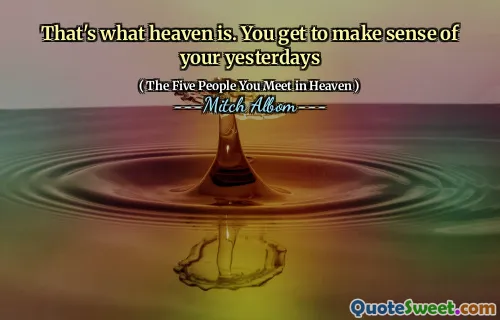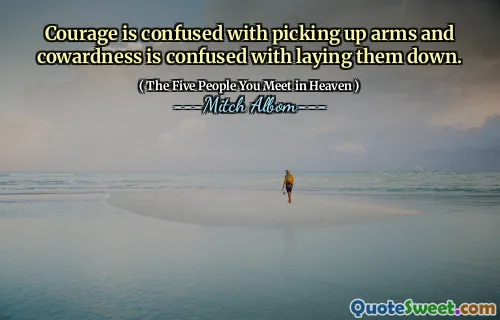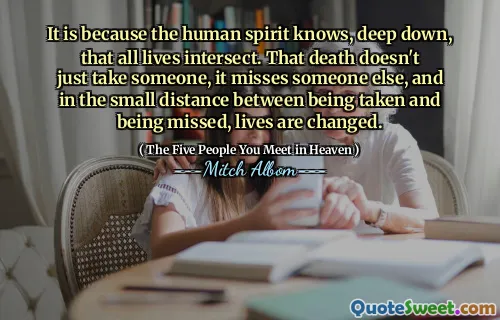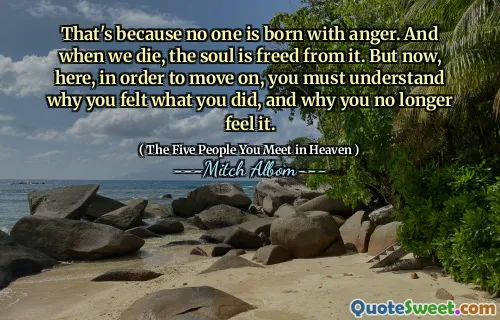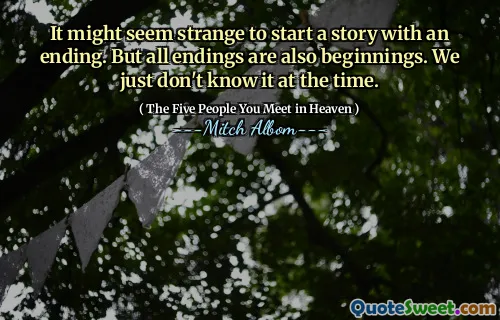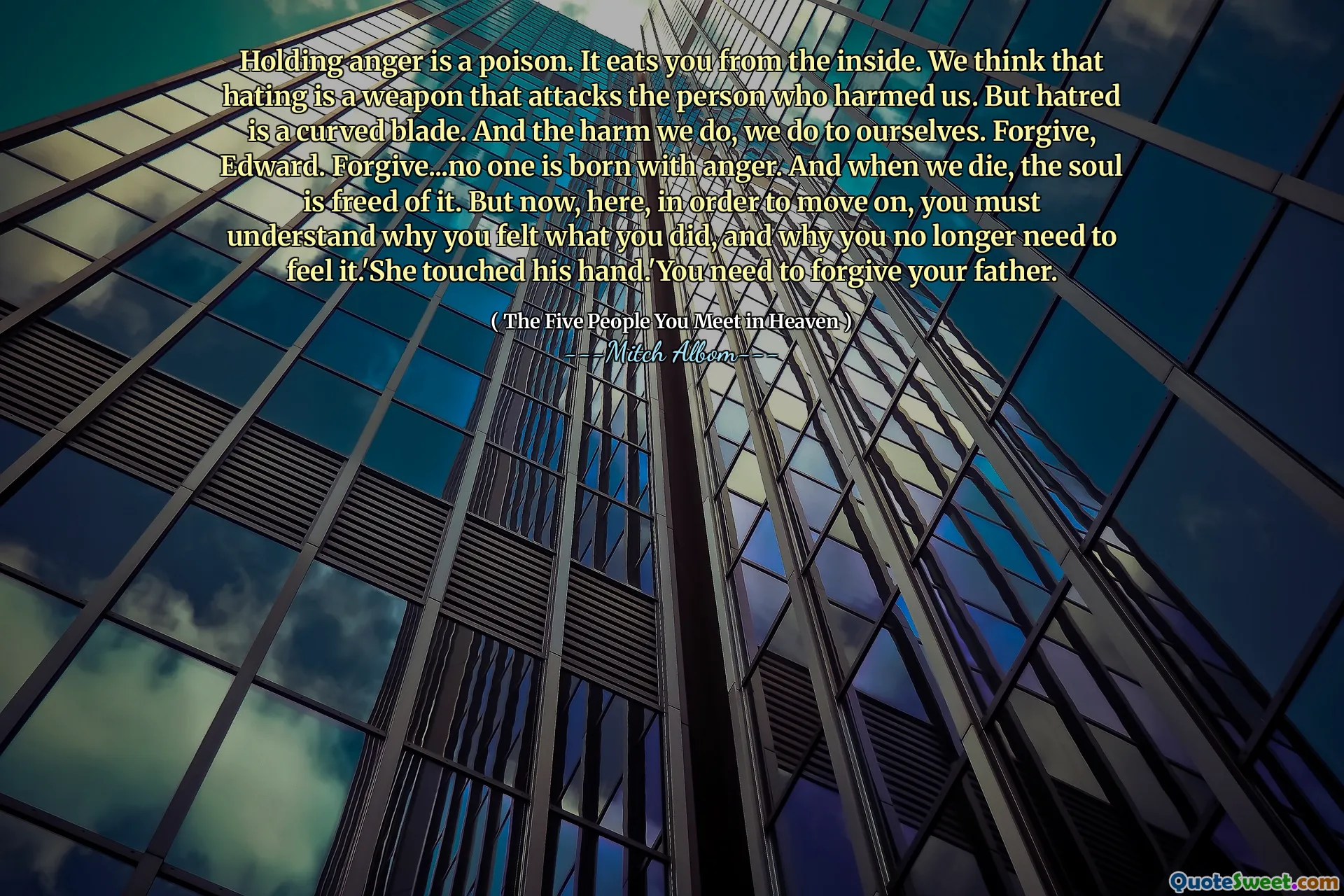
Holding anger is a poison. It eats you from the inside. We think that hating is a weapon that attacks the person who harmed us. But hatred is a curved blade. And the harm we do, we do to ourselves. Forgive, Edward. Forgive...no one is born with anger. And when we die, the soul is freed of it. But now, here, in order to move on, you must understand why you felt what you did, and why you no longer need to feel it.'She touched his hand.'You need to forgive your father.
The quote emphasizes the destructive nature of holding onto anger and hatred. It suggests that while we often perceive these emotions as a way to retaliate against those who have hurt us, they ultimately harm us more than anyone else. The metaphor of hatred as a "curved blade" implies that the suffering we inflict on others returns to us, leading to self-destruction. To truly heal and move forward, we must confront our feelings and recognize their impact.
The passage also underscores the importance of forgiveness, particularly in the context of familial relationships. It encourages letting go of negative emotions, such as anger towards one’s father, highlighting that these feelings are not intrinsic to our being. By forgiving, we liberate ourselves from the burdens of the past, allowing our souls to move freely towards healing and peace.
